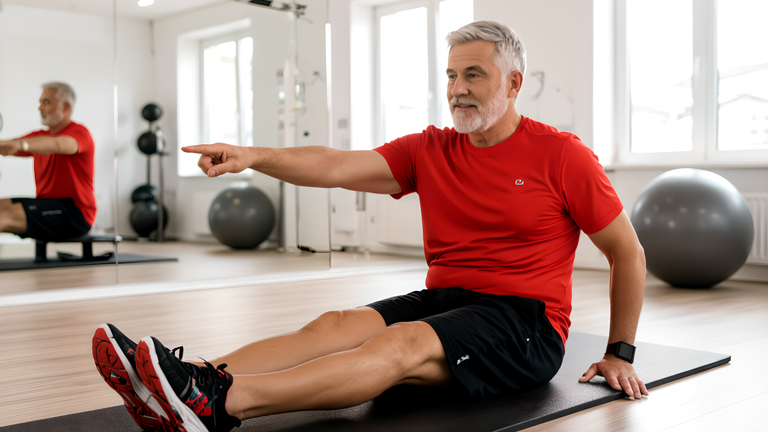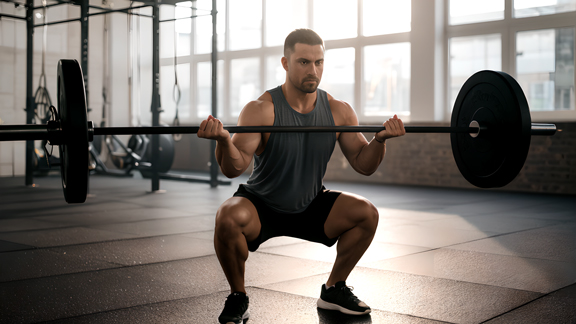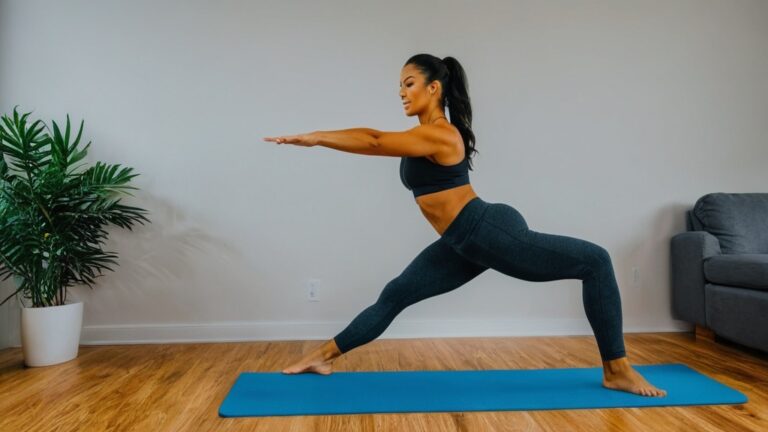Quality sleep plays a crucial role in overall health, especially for those over 50. As we age, our sleep patterns often change, leading to difficulties in achieving restorative rest. Poor sleep can affect mood, cognitive function, and physical health, making it essential to prioritize quality sleep.
Older adults may experience lighter sleep and more frequent awakenings. This can lead to feelings of fatigue and decreased energy levels during the day. Establishing a consistent sleep routine can help improve sleep quality and promote better overall well-being.
Understanding Mobility and Flexibility in Aging Bodies
Mobility and flexibility are vital components of physical health as we age. They allow us to perform daily activities with ease and maintain independence. However, aging often leads to stiffness and reduced range of motion, making it essential to address these issues proactively.
Regular movement helps maintain joint health and muscle strength. Engaging in activities that promote flexibility can significantly enhance mobility. Simple stretches and low-impact exercises can make a noticeable difference in how we move and feel.
The Role of Recovery in Maintaining Health and Fitness Over 50

Recovery is a critical aspect of any fitness regimen, especially for those over 50. As we age, our bodies require more time to recover from physical exertion. Prioritizing recovery helps prevent injuries and supports long-term health.
Incorporating rest days into a fitness routine allows muscles to repair and grow stronger.
This approach not only enhances performance but also promotes overall well-being.
Understanding the importance of recovery can lead to more effective workouts and improved health outcomes.
Tips for Improving Sleep Quality in Older Adults
Improving sleep quality involves several strategies that can be easily implemented. Creating a calming bedtime routine signals the body that it’s time to wind down. Activities like reading or gentle stretching can help prepare the mind for sleep.
Limiting screen time before bed is also crucial. The blue light emitted by devices can interfere with melatonin production, making it harder to fall asleep. Establishing a comfortable sleep environment, with a cool temperature and minimal noise, further enhances sleep quality.
Exercises and Techniques for Improving Mobility in Over-50s
Incorporating specific exercises can significantly improve mobility in older adults. Activities like yoga and tai chi focus on balance, flexibility, and strength. These practices not only enhance physical capabilities but also promote mental well-being.
Strength training is another effective way to improve mobility. Simple resistance exercises can help build muscle mass and support joint health. Regularly engaging in these activities fosters greater independence and confidence in daily movements.
The Benefits of Proper Recovery for Over-50 Bodybuilding

Proper recovery is essential for anyone engaged in bodybuilding, particularly those over 50. As muscles age, they require more time to recover from intense workouts. Prioritizing recovery helps prevent injuries and supports muscle growth.
Incorporating techniques like foam rolling or gentle stretching can aid recovery. These practices help alleviate muscle soreness and improve flexibility. Understanding the importance of recovery can lead to more effective bodybuilding routines and better overall results.
Common Challenges in Sleep, Mobility, and Recovery for Older Adults
Older adults often face unique challenges regarding sleep, mobility, and recovery. Sleep disturbances can stem from various factors, including medical conditions or medications. These challenges can lead to a cycle of fatigue and decreased physical activity.
Mobility issues may arise from arthritis or other age-related conditions. This can limit participation in physical activities, further exacerbating mobility challenges. Recognizing these obstacles is the first step toward finding effective solutions.
Nutritional Strategies for Supporting Recovery in Over-50s
Nutrition plays a vital role in supporting recovery for those over 50. Consuming adequate protein helps repair muscles after workouts. Including a variety of fruits and vegetables provides essential vitamins and minerals that support overall health.
Staying hydrated is equally important for recovery. Dehydration can hinder performance and prolong recovery times. Focusing on balanced meals that include healthy fats, whole grains, and lean proteins promotes optimal recovery.
How to Incorporate Recovery Days into Over-50 Bodybuilding Routines
Incorporating recovery days into bodybuilding routines is essential for older adults. Scheduling regular rest days allows muscles to heal and grow stronger. This approach prevents burnout and reduces the risk of injury.
Listening to your body is crucial when determining when to take recovery days. If you feel fatigued or sore, it may be time to rest. Balancing workout intensity with adequate recovery ensures long-term success in bodybuilding endeavors.
Overcoming Barriers to Quality Sleep, Mobility, and Recovery in Aging Bodies
Many barriers exist that hinder quality sleep, mobility, and recovery in older adults. Stress, anxiety, and chronic pain can all impact these areas negatively. Identifying these barriers is the first step toward finding effective solutions.
Creating a supportive environment can help overcome these challenges. This may involve seeking professional help for mental health issues or working with a physical therapist for mobility concerns. Taking proactive steps can lead to significant improvements in overall well-being.
The Role of Mindfulness and Stress Management in Supporting Sleep, Mobility, and Recovery for Over-50s
Mindfulness practices can significantly enhance sleep quality, mobility, and recovery for older adults. Techniques such as meditation or deep breathing exercises help reduce stress levels. Lower stress contributes to better sleep patterns and improved physical performance.
Incorporating mindfulness into daily routines fosters a sense of calm and focus. This approach encourages individuals to listen to their bodies and respond appropriately to their needs. Embracing mindfulness can lead to a healthier lifestyle overall.
In conclusion, prioritizing quality sleep, mobility, flexibility, recovery, nutrition, and mindfulness is essential for those over 50. By addressing these areas proactively, older adults can enhance their overall well-being and maintain an active lifestyle. Embracing these strategies leads to improved health outcomes and a better quality of life as we age gracefully.



